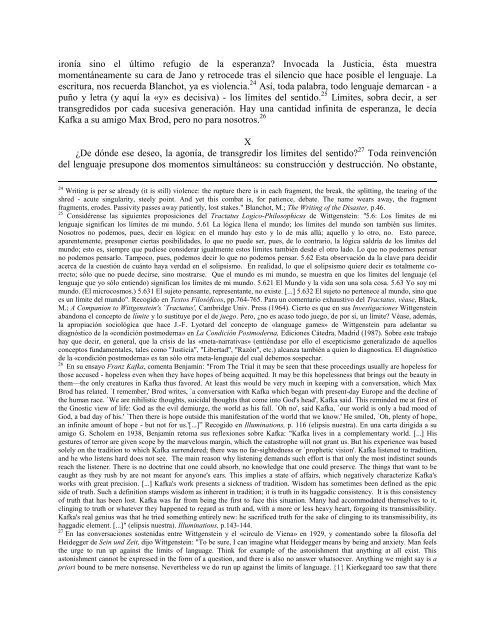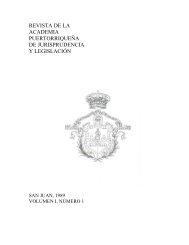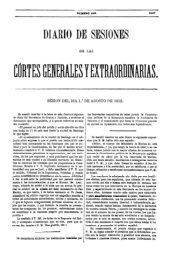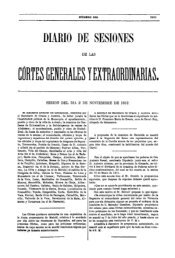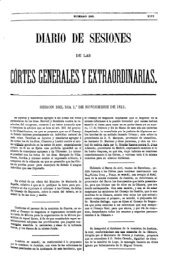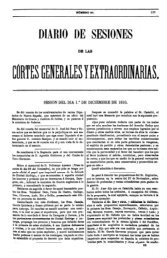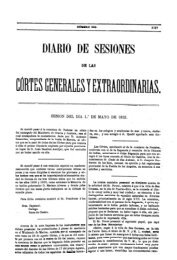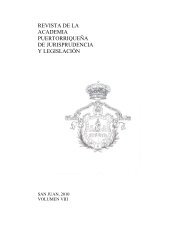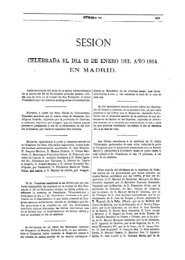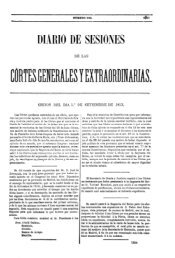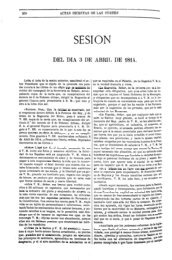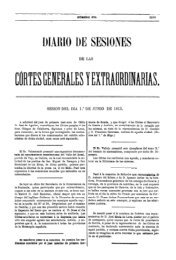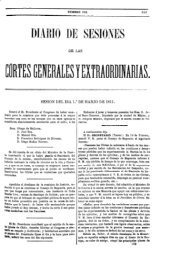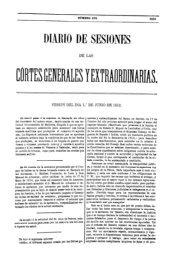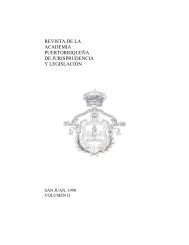por el po<strong>de</strong>r, por las estructuras y prácticas discursivas que constituyen, modifican, extinguen,etc., nuestro entendimiento <strong>de</strong>l entendimiento. El «discurso <strong>de</strong>l po<strong>de</strong>r» 23 es, propiamente dicho,la conciencia volcada sobre sí misma.IX«La déconstruction est la justice», escribe Derrida con su acostumbrada ironía. Ironíatrágica. Ironía que da a enten<strong>de</strong>r la imposibilidad misma <strong>de</strong>l entendimiento. Pero, ¿qué es laautonomía excesiva a este texto <strong>de</strong> Benjamín. ¿No es acaso éste uno <strong>de</strong> los riesgos <strong>de</strong> cualquier «proyecto» <strong>de</strong>construccionista?A la luz <strong>de</strong> su último trabajo, Thesis on The Philosophy of History -en don<strong>de</strong> Benjamín hilvana su mesianismo judaico con elmaterialismo histórico- creo que es posible rescatar su concepción <strong>de</strong> la «violencia divina» <strong>de</strong> tal interpretación. Claro, lapregunta a hacerse es si enten<strong>de</strong>mos que merece rescatarse tal i<strong>de</strong>a.23 En el pensamiento <strong>de</strong> Michel Foucault, «el discurso <strong>de</strong>l po<strong>de</strong>r» juega un papel fundamental en la articulación <strong>de</strong> su posición.En 1970, por ejemplo, Foucault pronunció su lección inaugural en el Collège <strong>de</strong> France, en la que intentó sentar las bases <strong>de</strong> loque llamó L'ordre du discours, traducido al español por A. González Troyano como El Or<strong>de</strong>n <strong>de</strong>l Discurso, Tusquets Editores,Barcelona (1973). Dice en su introducción: "He aquí la hipótesis que querría emitir, esta tar<strong>de</strong>, con el fin <strong>de</strong> establecer el lugar - oquizás el muy provisional teatro - <strong>de</strong>l trabajo que estoy realizando: yo supongo que en toda sociedad la producción <strong>de</strong>l discursoestá a la vez controlada, seleccionada y redistribuida por un cierto número <strong>de</strong> procedimientos que tienen por función conjurar lospo<strong>de</strong>res y peligros, dominar el acontecimiento aleatorio y esquivar su pesada y temible materialidad." p. 11. Al cual aña<strong>de</strong> mása<strong>de</strong>lante: "[...]El discurso, por más que en apariencia sea poca cosa, las prohibiciones que recaen sobre él, revelan muy pronto,rápidamente, su vinculación con el <strong>de</strong>seo y con el po<strong>de</strong>r. Y esto no tiene nada <strong>de</strong> extraño: ya que el discurso - el psicoanálisis noslo ha mostrado - no es simplemente lo que manifiesta (o encubre) el <strong>de</strong>seo; es también lo que es el objeto <strong>de</strong>l <strong>de</strong>seo; y ya que -esto la historia no cesa <strong>de</strong> enseñárnoslo - el discurso no es simplemente aquello que traduce las luchas o los sistemas <strong>de</strong>dominación, sino aquello por lo que, y por medio <strong>de</strong> lo cual, se lucha, aquel po<strong>de</strong>r <strong>de</strong>l que quiere uno adueñarse." p.12. De aquíFoucault parte a trazar los procedimientos que preten<strong>de</strong>n, con mayor o menor éxito, administrar la producción <strong>de</strong>l discurso.Des<strong>de</strong> esta óptica creo que es posible enten<strong>de</strong>r su ovevre, <strong>de</strong>s<strong>de</strong> Historié <strong>de</strong> la folie hasta La volonté <strong>de</strong> savoir, como un intentopor rescatar aquel discurso que ha sido silenciado por la «Historia»; v. gr. el «loco», el «prisionero», el «homosexual», etc. Eltrabajo <strong>de</strong> Foucault ha sido objeto <strong>de</strong> críticas en dos frentes, por lo menos. En Cogito et l'histoire <strong>de</strong> la folie, publicadooriginalmente en 1964, Derrida arremetió tempranamente contra Foucault por enten<strong>de</strong>r que el propio discurso <strong>de</strong> Foucault estabaaprisionado por el paradigma <strong>de</strong> la racionalidad cuando hace su análisis <strong>de</strong>l fenómeno histórico <strong>de</strong> la locura. Dice: “In writing ahistory of madness, Foucault has attempted - and this is the greatest merit, but also the very infeasibility of his book - to write ahistory of madness itself. Of madness itself. That is, by letting madness speak for itself. Foucault wanted madness to be thesubject of his book in every sense of the word: its theme and its first-person narrator, its author, madness speaking about itself.Foucault wanted to write a history of madness itself, that is, madness speaking on the basis of its own experience and un<strong>de</strong>r itsown authority, and not a history of madness <strong>de</strong>scribed within the language of reason, the language of psychiatry on madness [...]on madness already crushed beneath psychiatry, dominated, beaten to the ground, interned, that is to say, madness ma<strong>de</strong> into anobject and exiled as the other of a language and a historical meaning which have been confused with logos itself. [...] It is aquestion, therefore, of escaping the trap or objectivist naiveté that would consist in writing a history of untamed madness, ofmadness as it carries itself and breathes before being caught and paralyzed in the nets of classical reason, from within the verylanguage of classical reason itself, utilizing the concepts that were the historical instruments of the capture of madness -therestrained and restraining language of reason. Foucault's <strong>de</strong>termination to avoid this trap is constant. It is the most audacious andseductive aspect of his venture, producing its admirable tension. But it is also, with all seriousness, the mad<strong>de</strong>st aspect of hisproject [...]". Recogido en Writing and Difference, p. 34 (elipsis nuestra). Habermas, a su vez, en The Philosophical Discourse ofMo<strong>de</strong>rnity, pp. 238-293, critica a Foucault por la ambigüedad con que hace uso <strong>de</strong>l concepto «po<strong>de</strong>r». Es <strong>de</strong>cir, por un ladopreten<strong>de</strong> utilizarlo <strong>de</strong> forma sociológica, <strong>de</strong>scriptiva (aquí su seudo-empirismo); mientras que, por el otro, encubre sus raícesnietzscheanas, su vínculo con la «voluntad <strong>de</strong> saber» y la constitución misma <strong>de</strong> la Razón. Dice Habermas: "In his basic conceptof power, Foucault has forced together the i<strong>de</strong>alist i<strong>de</strong>a of transcen<strong>de</strong>ntal synthesis with the presuppositions of empiricistontology. This approach cannot lead to a way out of the philosophy of the subject, because the concept of power that is supposedto provi<strong>de</strong> a common <strong>de</strong>nominator for the contrary semantic components has been taken from the repertoire of the philosophy ofthe subject itself. According to this philosophy, the subject can take up two and only two relationships towards the world ofimaginable and manipulability objects: cognitive relationships regulated by the truth of judgments; and practical relationshipsregulated by the success of actions. Power is that by which the subject has an effect on objects in successful actions. In thisconnection, success in action <strong>de</strong>pends upon the truth of the judgments that enter into the plan of action; via the criterion ofsuccess in action, power remains <strong>de</strong>pen<strong>de</strong>nt on truth. Foucault abruptly reverses power's truth-<strong>de</strong>pen<strong>de</strong>ncy into the power<strong>de</strong>pen<strong>de</strong>ncyof truth [...]." p. 274. Según Habermas, y a la luz <strong>de</strong> su tesis sobre el «discurso <strong>de</strong> la mo<strong>de</strong>rnidad» (véase nota 18), laposición <strong>de</strong> Foucault está con<strong>de</strong>nada a <strong>de</strong>sembocar en los aporías característicos <strong>de</strong> la razón subjetiva. Curioso es observar cómoeste argumento <strong>de</strong> Habermas corre paralelamente, aunque con propósitos y presupuestos radicalmente distintos, a lo expuesto porDerrida en 1963.
ironía sino el último refugio <strong>de</strong> la esperanza? Invocada la Justicia, ésta muestramomentáneamente su cara <strong>de</strong> Jano y retroce<strong>de</strong> tras el silencio que hace posible el lenguaje. Laescritura, nos recuerda Blanchot, ya es violencia. 24 Así, toda palabra, todo lenguaje <strong>de</strong>marcan - apuño y letra (y aquí la «y» es <strong>de</strong>cisiva) - los límites <strong>de</strong>l sentido. 25 Límites, sobra <strong>de</strong>cir, a sertransgredidos por cada sucesiva generación. Hay una cantidad infinita <strong>de</strong> esperanza, le <strong>de</strong>cíaKafka a su amigo Max Brod, pero no para nosotros. 26X¿De dón<strong>de</strong> ese <strong>de</strong>seo, la agonía, <strong>de</strong> transgredir los límites <strong>de</strong>l sentido? 27 Toda reinvención<strong>de</strong>l lenguaje presupone dos momentos simultáneos: su construcción y <strong>de</strong>strucción. No obstante,24 Writing is per se already (it is still) violence: the rupture there is in each fragment, the break, the splitting, the tearing of theshred - acute singularity, steely point. And yet this combat is, for patience, <strong>de</strong>bate. The name wears away, the fragmentfragments, ero<strong>de</strong>s. Passivity passes away patiently, lost stakes." Blanchot, M.; The Writing of the Disaster, p.46.25 Considérense las siguientes proposiciones <strong>de</strong>l Tractatus Logico-Philosophicus <strong>de</strong> Wittgenstein: "5.6: Los límites <strong>de</strong> milenguaje significan los límites <strong>de</strong> mi mundo. 5.61 La lógica llena el mundo; los límites <strong>de</strong>l mundo son también sus límites.Nosotros no po<strong>de</strong>mos, pues, <strong>de</strong>cir en lógica: en el mundo hay esto y lo <strong>de</strong> más allá; aquello y lo otro, no. Esto parece,aparentemente, presuponer ciertas posibilida<strong>de</strong>s, lo que no pue<strong>de</strong> ser, pues, <strong>de</strong> lo contrario, la lógica saldría <strong>de</strong> los límites <strong>de</strong>lmundo; esto es, siempre que pudiese consi<strong>de</strong>rar igualmente estos límites también <strong>de</strong>s<strong>de</strong> el otro lado. Lo que no po<strong>de</strong>mos pensarno po<strong>de</strong>mos pensarlo. Tampoco, pues, po<strong>de</strong>mos <strong>de</strong>cir lo que no po<strong>de</strong>mos pensar. 5.62 Esta observación da la clave para <strong>de</strong>cidiracerca <strong>de</strong> la cuestión <strong>de</strong> cuánto haya verdad en el solipsismo. En realidad, lo que el solipsismo quiere <strong>de</strong>cir es totalmente correcto;sólo que no pue<strong>de</strong> <strong>de</strong>cirse, sino mostrarse. Que el mundo es mi mundo, se muestra en que los límites <strong>de</strong>l lenguaje (ellenguaje que yo sólo entiendo) significan los límites <strong>de</strong> mi mundo. 5.621 El Mundo y la vida son una sola cosa. 5.63 Yo soy mimundo. (El microcosmos.) 5.631 El sujeto pensante, representante, no existe. [...] 5.632 El sujeto no pertenece al mundo, sino quees un límite <strong>de</strong>l mundo". Recogido en Textos Filosóficos, pp.764-765. Para un comentario exhaustivo <strong>de</strong>l Tractatus, véase, Black,M.; A Companion to Wittgenstein's `Tractatus', Cambridge Univ. Press (1964). Cierto es que en sus Investigaciones Wittgensteinabandona el concepto <strong>de</strong> límite y lo sustituye por el <strong>de</strong> juego. Pero, ¿no es acaso todo juego, <strong>de</strong> por sí, un límite? Véase, a<strong>de</strong>más,la apropiación sociológica que hace J.-F. Lyotard <strong>de</strong>l concepto <strong>de</strong> «language games» <strong>de</strong> Wittgenstein para a<strong>de</strong>lantar sudiagnóstico <strong>de</strong> la «condición postmo<strong>de</strong>rna» en La Condición Postmo<strong>de</strong>rna, Ediciones Cátedra, Madrid (1987). Sobre este trabajohay que <strong>de</strong>cir, en general, que la crisis <strong>de</strong> las «meta-narrativas» (entiéndase por ello el escepticismo generalizado <strong>de</strong> aquellosconceptos fundamentales, tales como "Justicia", "Libertad", "Razón", etc.) alcanza también a quien lo diagnostica. El diagnóstico<strong>de</strong> la «condición postmo<strong>de</strong>rna» es tan sólo otra meta-lenguaje <strong>de</strong>l cual <strong>de</strong>bemos sospechar.26En su ensayo Franz Kafka, comenta Benjamín: "From The Trial it may be seen that these proceedings usually are hopeless forthose accused - hopeless even when they have hopes of being acquitted. It may be this hopelessness that brings out the beauty inthem—the only creatures in Kafka thus favored. At least this would be very much in keeping with a conversation, which MaxBrod has related. `I remember,' Brod writes, `a conversation with Kafka which began with present-day Europe and the <strong>de</strong>cline ofthe human race. `We are nihilistic thoughts, suicidal thoughts that come into God's head', Kafka said. This remin<strong>de</strong>d me at first ofthe Gnostic view of life: God as the evil <strong>de</strong>miurge, the world as his fall. `Oh no', said Kafka, `our world is only a bad mood ofGod, a bad day of his.' `Then there is hope outsi<strong>de</strong> this manifestation of the world that we know.' He smiled, `Oh, plenty of hope,an infinite amount of hope - but not for us.'[...]” Recogido en Illuminations, p. 116 (elipsis nuestra). En una carta dirigida a suamigo G. Scholem en 1938, Benjamín retoma sus reflexiones sobre Kafka: "Kafka lives in a complementary world. [...] Hisgestures of terror are given scope by the marvelous margin, which the catastrophe will not grant us. But his experience was basedsolely on the tradition to which Kafka surren<strong>de</strong>red; there was no far-sightedness or `prophetic vision'. Kafka listened to tradition,and he who listens hard does not see. The main reason why listening <strong>de</strong>mands such effort is that only the most indistinct soundsreach the listener. There is no doctrine that one could absorb, no knowledge that one could preserve. The things that want to becaught as they rush by are not meant for anyone's ears. This implies a state of affairs, which negatively characterize Kafka'sworks with great precision. [...] Kafka's work presents a sickness of tradition. Wisdom has sometimes been <strong>de</strong>fined as the epicsi<strong>de</strong> of truth. Such a <strong>de</strong>finition stamps wisdom as inherent in tradition; it is truth in its haggadic consistency. It is this consistencyof truth that has been lost. Kafka was far from being the first to face this situation. Many had accommodated themselves to it,clinging to truth or whatever they happened to regard as truth and, with a more or less heavy heart, forgoing its transmissibility.Kafka's real genius was that he tried something entirely new: he sacrificed truth for the sake of clinging to its transmissibility, itshaggadic element. [...]" (elipsis nuestra). Illuminations, p.143-144.27En las conversaciones sostenidas entre Wittgenstein y el «círculo <strong>de</strong> Viena» en 1929, y comentando sobre la filosofía <strong>de</strong>lHei<strong>de</strong>gger <strong>de</strong> Sein und Zeit, dijo Wittgenstein: "To be sure, I can imagine what Hei<strong>de</strong>gger means by being and anxiety. Man feelsthe urge to run up against the limits of language. Think for example of the astonishment that anything at all exist. Thisastonishment cannot be expressed in the form of a question, and there is also no answer whatsoever. Anything we might say is apriori bound to be mere nonsense. Nevertheless we do run up against the limits of language. {1} Kierkegaard too saw that there
- Page 1 and 2:
REVISTA DE LA ACADEMIA PUERTORRIQUE
- Page 3:
2enardecerá, en vez de corregir, l
- Page 9 and 10:
través de la Ley, enardecerá, en
- Page 11 and 12:
MEDICINE AND BIOLOGY: HOW FAR CAN T
- Page 13:
unfair, in view of the total absenc
- Page 16 and 17:
CONTESTACIÓN AL DISCURSO DEL HON.
- Page 18 and 19:
la Oficina de Política sobre Cienc
- Page 20 and 21:
códigos de ética existentes y los
- Page 22 and 23:
REFORMING THE FEDERAL SENTENCING GU
- Page 24 and 25:
narcotics and firearms, they tend t
- Page 26 and 27:
Our faith in technology and plannin
- Page 28 and 29:
single, all-powerful judge”. 17 W
- Page 30 and 31:
CONTESTACIÓN AL DISCURSO DEL HON.
- Page 32 and 33:
3trafficking and gun-related offens
- Page 34 and 35:
5conduct which experience has shown
- Page 36 and 37:
2En este escrito trataré de establ
- Page 38 and 39:
4atender sus obligaciones económic
- Page 40 and 41:
6B. Juicio Público: Al igual que e
- Page 42 and 43:
8explicar la doctrina vigente. 47 A
- Page 44 and 45:
10tan serio disturbio emocional (
- Page 46 and 47:
12En Soto Ramos v. Superintendente
- Page 48 and 49:
14profesional y cómo ésta podría
- Page 50 and 51:
16Las implicaciones de esta exigenc
- Page 52 and 53:
18jurado. 116 Por otro lado, nuestr
- Page 54 and 55:
20forma rigurosa, de que la renunci
- Page 56 and 57:
22Tribunal Supremo ha seguido celos
- Page 58 and 59:
24protección es mayor que la que e
- Page 60 and 61:
264. Absuelto un acusado por determ
- Page 62 and 63:
28En Puerto Rico sólo cabe regular
- Page 64 and 65:
30B. Aplicación ex post facto de l
- Page 66 and 67:
32relación con el alcance 224 de l
- Page 68 and 69:
34se trata de una norma que comenz
- Page 70 and 71:
364) que la corroboración se relac
- Page 72 and 73:
38arresto. Bajo la Enmienda Cuarta,
- Page 74 and 75:
40razonable a la intimidad, no hay
- Page 76 and 77:
42Nuestra legislación permite la d
- Page 78 and 79:
44Derechos se dispone expresamente
- Page 80 and 81: 46Estados Unidos, adopta una posici
- Page 82 and 83: 2Aclarados esos puntos, coincido co
- Page 84 and 85: La verdad es que los principios con
- Page 86 and 87: EL DOLOR Y LA ANGUSTIA MENTALRamón
- Page 88 and 89: 3.7 8 9 10conocida y aceptada, hast
- Page 90 and 91: 5estímulo. Sin embargo, el punto e
- Page 92 and 93: 7de reconocimiento mundial, como ex
- Page 94 and 95: dice que éste no distingue entre e
- Page 96 and 97: 11dos meses y medio más tarde cuan
- Page 98 and 99: implicaciones negativas. Se debe de
- Page 100 and 101: 2naturaleza de los seres vivos, apl
- Page 102 and 103: 4de la clase dominante en la socied
- Page 104 and 105: 6su hora admitió ser identificado
- Page 106 and 107: 8cumpla la prestación que la norma
- Page 108 and 109: 10Encontramos la expresión todaví
- Page 110 and 111: 12La satisfacción de necesidades h
- Page 112 and 113: 14como aquí se propone, puede hace
- Page 114 and 115: LOS DERECHOS HUMANOS FRENTE AL ESTA
- Page 116 and 117: Como resultado, se ha llegado a un
- Page 118 and 119: Yugoslavia, Georgia, Azerbaiján, A
- Page 120 and 121: METASTESIS DE LA «RAZÓN» Y EL «
- Page 122 and 123: fue quizás el producto de esa mism
- Page 124 and 125: embargo, la corroboración de la ne
- Page 126 and 127: VICuando Hegel, en su Phänomenolog
- Page 128 and 129: del entendimiento (Verstehen) en el
- Page 132 and 133: lo único que indica esta trasgresi
- Page 134 and 135: Legislativa enmendó la Ley 53 orig
- Page 136 and 137: Incluso, únicamente ofreció su t
- Page 138 and 139: Al llegar a la gobernación en 1965
- Page 140 and 141: Presidente del Tribunal Supremo y a
- Page 142 and 143: Lamentablemente, vivimos en una soc
- Page 144 and 145: 1. El que en todas las acciones rel
- Page 146 and 147: coordinación interagencial, con pa


